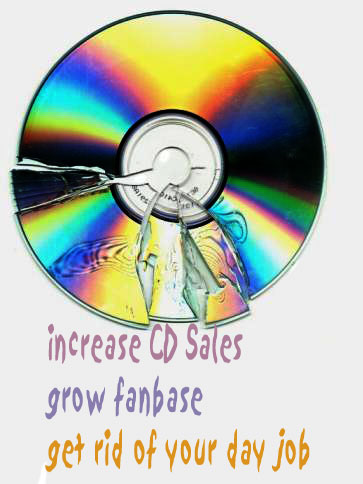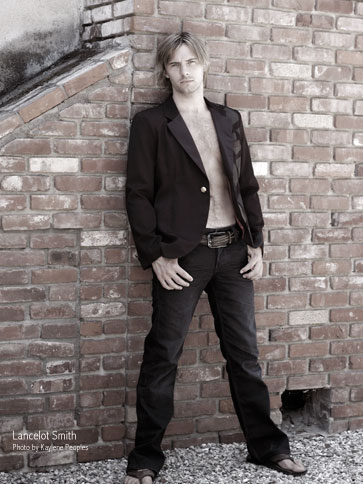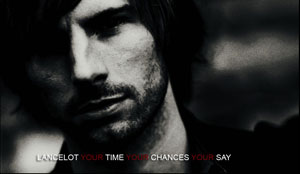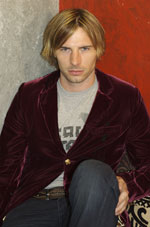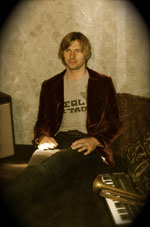Michelle Shaprow – Transcending Musical Genres
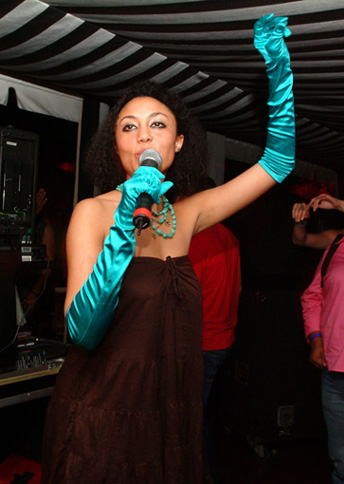 Los Angeles recording artist Michelle Shaprow has songs on several record labels, including Om Records Scuba “Hidden Treasures” compilation, Norman Jay’s “Good Times 3” compilation, Fader Magazine compilation “Suite 903,” Ministry of Sound’s “Chill out Ibiza” compilation, while charting on Giles Peterson Top 20 List and major dance stations. In 2001, her Warner Bros single, “If I Lost You,” reached #1 on BBC London 94.9 FM. You can also see Michelle singing on top of a rooftop in the Coke Zero commercial, and she is currently doing media work for VH-1. She’s made a huge impact on the music scene and is now planning to put out her first solo album featuring all of her own music.
Los Angeles recording artist Michelle Shaprow has songs on several record labels, including Om Records Scuba “Hidden Treasures” compilation, Norman Jay’s “Good Times 3” compilation, Fader Magazine compilation “Suite 903,” Ministry of Sound’s “Chill out Ibiza” compilation, while charting on Giles Peterson Top 20 List and major dance stations. In 2001, her Warner Bros single, “If I Lost You,” reached #1 on BBC London 94.9 FM. You can also see Michelle singing on top of a rooftop in the Coke Zero commercial, and she is currently doing media work for VH-1. She’s made a huge impact on the music scene and is now planning to put out her first solo album featuring all of her own music.
This Yale graduate majored in music perception and cognition, along with psychology and philosophy. She presents a convincing argument as to why people like the music they do—a philosophy that directly reflects her very own, very infectious musical style.
How did you decide to become a singer?
I wrote music when I was a child. In eighth grade I wrote our eighth grade musical. It was a dance/pop version of The Hobbit, and I wrote a musical my senior year in high school for “Rumplestiltskin.” It felt pretty natural and I just wanted to do it. I had a lot of songs, and I just wanted to make them into a musical.
What was that musical about?
It was a futuristic version of “Rumpelstiltskin,” where Rumplestiltskin was this devil trying to seduce girls.
Thought about converting it to a screenplay and maybe selling it? Musicals are becoming popular again with Moulin Rouge,Chicago, and Dreamgirls.
(Smiles) Maybe later down the line.
Where are you from originally?
All over the place, I was born in El Paso, Texas. Then I moved to Houston, Chicago, then Los Angeles, and then New Haven, and then my family moved to Florida, and then I moved here, and I have been here for about four months now.
And I understand you’re going to be attending business school?
Probably UCLA Anderson. I got admitted there, but I’m still looking at other schools. I will start classes in September.
What happens if your music takes off while you’re in school?
I can still do music, and release it. I don’t really see a contradiction.
Why don’t you describe your music for me?
I call it “neo” because it’s just really how I hear it. I don’t try to fit it in any genres.
So it’s very new, and I’ve worked with a lot of dance and soul producers, so it’s kind of across the board. I just try to make good music.
What inspires it?
It depends on whether it’s a co-write or it’s just something that comes organically through me. If it comes organically through me, it will usually be some chords that come to mind a lot. I’ll start to etch them out, and then a melody, syllables, and then words. But I don’t know if there is one precise thing that inspires it as much as just the feeling of existence.
Once you get to the words, do you have a theme in mind?
For me it’s really just about not contradicting what the chords are saying. So as long as the lyrics are saying what the chords are saying, I’m cool. A lot of times they’re open-ended. Chords are about life, full of a lot of different types of emotions, as opposed to specific things. So I think a lot of times it’s a lot easier to be more accurate with the chords if my words are more open-ended.
You want to make sure the lyrics mirror the chords? What does that mean exactly?
For me it just means being open-ended enough so that it can really replicate what a chord is saying. I don’t really get too specific unless it’s compatible. It means just going with the music. That’s the most important thing for me.
Your music has a lot of cool dance beats. Why did you choose to do dance music?
I don’t think I really chose dance. I just did a dance song and a dance producer contacted me; and then dance producers kept contacting me. So I ended up doing a lot of dance, but I’m not really trying to do one type of genre. But I do think the reason that I have ended up doing a lot of dance is because it’s one of those more open-ended genres. It allows that type of flexibility, where a lot of other styles are more confined. But dance and the Europeans are open, and my music is pretty open, so it falls into dance. But I don’t really think about doing things in a certain bpm [beats per minute].
What is it about you that makes you think outside the box like that, because a lot of people who write songs and do music cater to a certain style. You seem to be more of a free thinker.
It’s probably because of my background, growing up multi-racial, and growing up living in a lot of different places, and being exposed to rich people, poor people, different types of cities, different types of cultures, you kind of just get outside of that. I feel like I’m a part of it, but I don’t feel like I’m all this, or I’m all about that type of culture or group or socio-economic status, or genre.
I am sure the Yale experience also has helped you formulate who you are as an artist.
Definitely.
How would you define Michelle Shaprow in a couple of sentences?
I’ll use words: Creative, philosophical, questioning, open-minded, positive, spiritual.
Perhaps people evoke those descriptions from your music as well.
Yes, definitely.
I read something on your website. It was the focus of your major. It really caught my interest. It had to do with sociology and people in music. Could you go into more detail?
My senior thesis was on music cognition and psychology, which is basically why we like the music we do. And this is mostly in the realm of chords and melody, but I think it can be applied to all types of media. Things that are sticky—that appeal to people, have a good balance of polar elements. If I can get technical… a song would be like a system. I classify them as X elements and Y elements. The X elements are the complex ones, the Y elements would be the simple ones. In the category of the complex elements, you have things that are novel, melodic leaps, dissonant chords, anything that takes the mind a little bit more energy to process, like syncopation, since it’s not regular. Dissonance is similar to syncopation, melodic leaps and any new information, novel musical ideas. On the other end of the spectrum you have simple things. Things that are familiar, like stable chords, simple chords, melodic steps. So within any song, any type of X element, it will always be compensated by a Y element in that it can occur not necessarily simultaneously, but you can have an X element in one part to be compensated by a Y element twenty seconds later.
Would you say that the elements that are more familiar to people are something you need more of than the more complicated elements like syncopation and dissonance?
My theory was that it’s the balance of both, but I think the balance can change; or how much of each element you have can change depending on society and where society is. So maybe now we’re in a simple place. I think we’re moving into a more complex evolved place. But yeah, now a lot of songs are pretty simple.
So what is your plan for your music?
My plan is to put out an album on i-Tunes this summer. Randy Jackson heard my music on MySpace through a neo-soul artist. I met with Randy and he said he wanted to put my song “I Will Be Good for You” on a compilation, which is coming out this summer. And I am going to put out my own album around the same time.
What obstacles have you encountered while working on your music?
Getting it to sound the way I want to, and finding the right producers, organizing the entire project [have been my biggest challenges]. As an independent artist I am in charge of a lot of the business elements, like the marketing, the strategy, which is why I am really excited to go to business school. I’ll be able to manage all those things easier.
I feel like everything is doable. I don’t feel like there are types of information that are not understandable. I feel like time is the only obstacle.
Are you getting any help? Or are you doing a lot of it on your own?
I’m doing a lot of it. I produce my own stuff. I do a lot of the tracking at home. I do a lot of collaboration with other producers, but it’s never really my own music, like the way I intend for it to be. When you ‘re working with a producer, and they have the distribution outlets, and they have their whole reputation as a certain type of producer, you end up going into their world. Now I try to do production swaps when working with other producers. I’ll take less of a percentage of the royalties if they’ll do additional production on my work.
Where do you see yourself in five years?
Owning my own music company, and I say that in a broad term, because we don’t really know where music is going right now. Finding a way to monetize music and doing something with music, film, and having a few records out.
Michelle Shaprow has a lot of singles that are already out from the record labels Warner Bros, Milan Records, Ministry of Sound, and even a new one coming out on Capitol through King Brit, as well as some other compilations with producers throughout Europe and the United states. You can purchase her at most retail outlets, like Virgin Megastores, Walmart, K-Mart, and any outlet that sells cds, as well as online.
To learn more about Michelle Shaprow, visit her websites: www.michelleshaprow.com and www.myspace.com/michelleshaprow.
Interviewed by Kaylene Peoples
